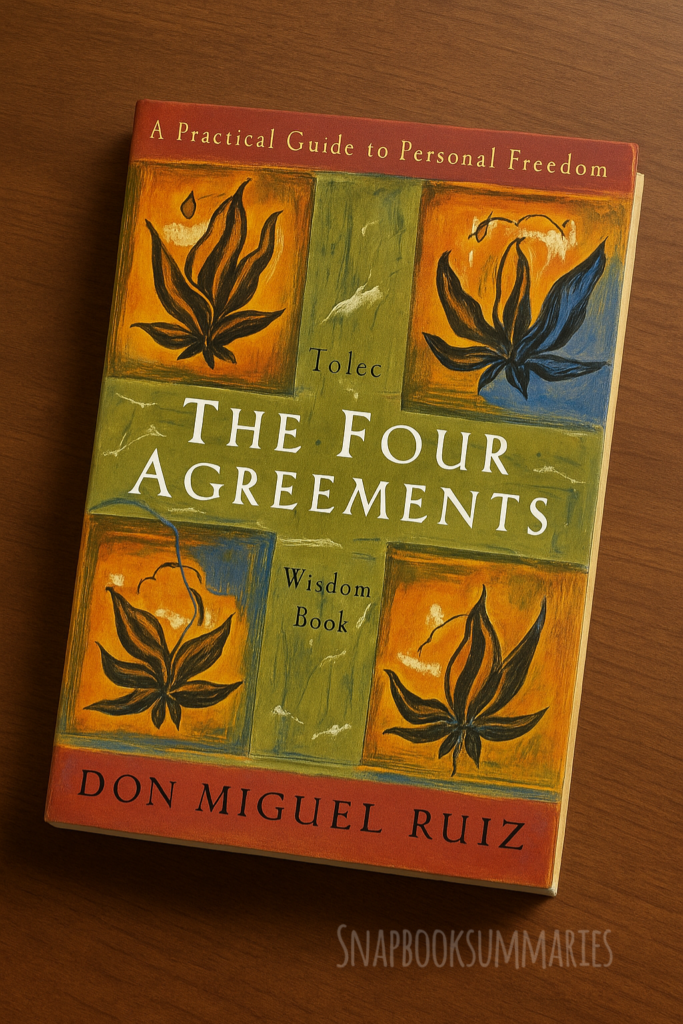Book Summary

The Four Agreements presents a code of conduct based on ancient Toltec wisdom that offers a powerful guide to personal freedom, transformation, and inner peace. Ruiz explains that from childhood, we are domesticated by society—taught beliefs, fears, and self-judgments that shape how we see ourselves and the world. These learned “agreements” are often limiting and destructive. The book proposes that by replacing these with four new agreements, we can break free from suffering and live with greater authenticity, love, and joy.
The Four Agreements:
1. Be Impeccable with Your Word
Meaning:
- Speak with integrity. Say only what you mean.
- Avoid using words to speak against yourself or to gossip about others.
- Use the power of your words in the direction of truth and love.
Why it matters: Words are powerful tools that can create or destroy. When we use them mindfully, we build trust, self-respect, and positive relationships. Being impeccable also means not speaking against yourself—no self-judgment, blame, or internal criticism.
“Your word is the power that you have to create. It is a gift.”
2. Don’t Take Anything Personally
Meaning:
- What others say or do is a projection of their own reality, not yours.
- When you are immune to others’ opinions and actions, you won’t suffer needlessly.
Why it matters: Taking things personally is one of the greatest causes of emotional pain. Ruiz explains that nothing others do is truly about you—it’s about their own beliefs, wounds, and perceptions. By not taking things personally, you free yourself from their judgments and maintain inner peace.
“Nothing others do is because of you. What others say and do is a projection of their own reality.”
3. Don’t Make Assumptions
Meaning:
- Find the courage to ask questions and express what you really want.
- Communicate clearly to avoid misunderstandings and drama.
Why it matters: We often assume we know what others are thinking, or that they know what we want. This creates unnecessary conflict and disappointment. Making assumptions is a major source of relationship breakdowns. Clarity through open communication eliminates confusion and fosters trust.
“The problem with making assumptions is that we believe they are the truth.”
4. Always Do Your Best
Meaning:
- Your best will change from moment to moment—do your best under any circumstance.
- Avoid self-judgment and regret. Doing your best allows you to live without guilt or shame.
Why it matters: This agreement ties all the others together. It acknowledges that perfection is impossible and encourages self-compassion. Whether you’re tired, sad, or energized, doing your best keeps you honest with yourself and builds integrity. It’s also a buffer against self-criticism.
“Just do your best—in any circumstance in your life—it doesn’t matter if you are sick or tired.”
Final Message
The Four Agreements are tools for liberation. When you live by them, you break the old agreements rooted in fear, self-doubt, and judgment. You begin to live consciously, authentically, and lovingly—with yourself and others.
“If you live your life with these agreements, your life will be completely transformed.”